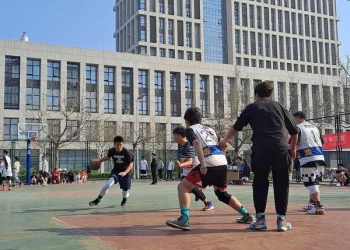Study abroad in Japan undergraduate course and master, need a year tuition expensive not expensive?
Studying abroad in Japan is relatively inexpensive, so here’s a look at the details.
1, undergraduate tuition in Japan, the national university tuition fees are unified nationwide, there is no professional distinction.
Public universities and national universities are generally the same, but the tuition fees of different schools vary by about 10%. In general, the annual tuition fees are about 40,000, 50,000 to 60,000 RMB.
International students can apply for half free tuition at state and public universities, or full tuition if they get good grades.
In Japan, there is no uniform division of tuition fees in private universities, but they are generally more expensive than public universities. The tuition fees for humanities, education, law and economics majors are about 800,000 yen a year, while those for science, technology and agriculture majors are about 1.2 million yen.
Therefore, a year of undergraduate study in a private university in Japan usually costs 60,000-70,000 RMB tuition. 2. Master’s tuition in a national university in Japan, a year of master’s study costs about 753,800 yen, and a year of public university (regardless of subjects) costs about 858,286 yen.
In private universities, the annual tuition for a master’s degree in literature and education is about 1.15 million yen, the tuition for a master’s degree in economics and law is about 1.08 million yen, and the tuition for a master’s degree in science and technology is about 1.37 million yen.
1, rent ¡¤ A, university dormitory: only public universities, 5000-20,000 yen/month;
¡¤ B. Small apartment: usually wood building with less than 3 floors, 30,000-60,000 yen/month;
¡¤ C. Senior apartment: Generally large buildings with more than 4 floors, 70,000-120,000 yen/month.
A. Thrifty type: cook by myself, don’t eat out often, 30,000 yen/month;
¡¤ B. Ordinary: cook by yourself, eat out occasionally, go shopping on weekends, 40,000-60,000 yen/month;
¡¤ C. Luxury type: eating out often and shopping on weekends, 100,000 yen/month.
3. Transportation cost ¡¤ 5,000-10,000 yen/month according to the distance between the accommodation and the school.
4. Miscellaneous expenses ¡¤ A. Telephone bill: 3,000-10,000 yen/month;
¡¤ B. Clothes: 3,000-10,000 yen/month;
¡¤ C. Others: 3,000 yen/month.
Total living expenses: 80,000-120,000 yen/month (public dormitory, private small apartment).
1. When applying for Japanese scholarship, you should take the initiative to contact the applicant. The competition for Japanese scholarship is fierce.
If international students send the scholarship application information, just wait for the result, they will keep regular contact with the opportunity close at hand, timely know whether to supplement the application can master the progress of scholarship application, can also increase the success rate of application.
Japanese schools believe that only school personnel are qualified to assess the academic ability and potential of applicants, and this will be used as a standard to evaluate whether the level of international students meets the scholarship criteria.
Japanese schools do not care about the title and position of the recommendation letter writer, but the academic ability, academic status and research achievements of the recommendation letter writer. Therefore, Chinese students are meaningful.
When choosing a recommendation, it is best to find some professors or teachers who have academic ties to the school you are applying for, so that the academic level of the people in Japan will be different from the recommendation letter.
It is also important to note that the recommender should know the student personally, otherwise the recommender’s recommendation will not be taken seriously.




















